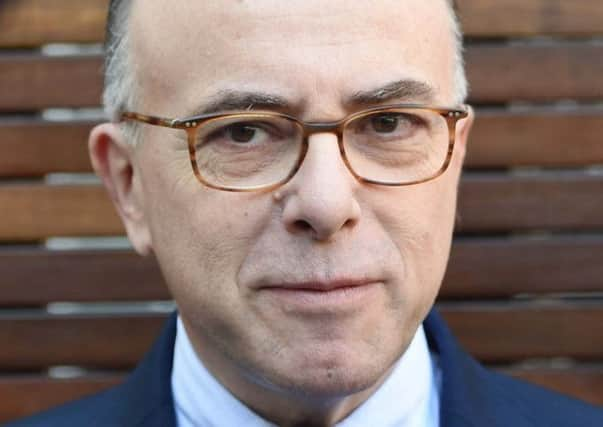France ask social networks to help tackle terror


“We emphasised that when an investigation is under way we don’t want to go through the usual government to government channels, which can take so long,” said French interior minister Bernard Cazeneuve on Friday after meeting representatives from the US technology giants. “It’s important to have full co-operation and a quick reaction,” he added.
Cazeneuve’s one-day visit to San Francisco and Silicon Valley comes weeks after terrorist attacks in Paris left 20 people dead, including three gunmen.
Advertisement
Hide AdAdvertisement
Hide AdOn 7 January, two gunmen killed 12 people and injured 11 more during an attack on the satirical newspaper Charlie Hebdo in Paris. A third gunman killed a policewoman on 8 January and then killed four more people a day later after taking hostages at a kosher supermarket in Paris. Police killed the three gunmen.
Twitter and Facebook spokespeople said they do everything they could to stop material that incites violence but did not say whether they would heed Cazeneuve’s request for direct co-operation with France.
“We regularly host ministers and other governmental officials from across the world at Facebook, and were happy to welcome Cazeneuve today,” a Facebook spokesman said. “We work aggressively to ensure we do not have terrorists or terror groups using the site, and we also remove any content that praises or supports terrorism.”
When asked whether Twitter would work closely with French investigators, a spokesman said its website outlines the guidelines for law enforcement to request information. “We review all reported content against our rules, which prohibit direct, specific threats of violence against others,” the spokesman wrote in an e-mail.
An e-mail to Google requesting comment was not immediately answered.
Cazeneuve said he called on the technology companies to join in the fight against the terrorist propaganda disseminated on the internet and to block terrorists’ ability to use websites and online videos to recruit and indoctrinate new followers. The pace of foreign fighters joining Islamic State and other extremist groups has not slowed and at least 3,400 come from western nations among 20,000 from around the world, according to US intelligence officials.
“I told them we can figure this out together, we can come up with counter-terrorism speech and block these sites that are enticing the most vulnerable members of our society to commit terrorist acts,” said Cazeneuve.
France is also pushing for jihadi material on the internet to be treated like child porn, an approach that before the attacks in Paris was getting scant support but now seems to have caught the attention of Europe’s top security officials.
Advertisement
Hide AdAdvertisement
Hide AdCazeneuve said the meeting in San Francisco was a first step in building a strong relationship between the technology companies and the French government.
He said he invited them to go to Paris in April to continue the conversation.